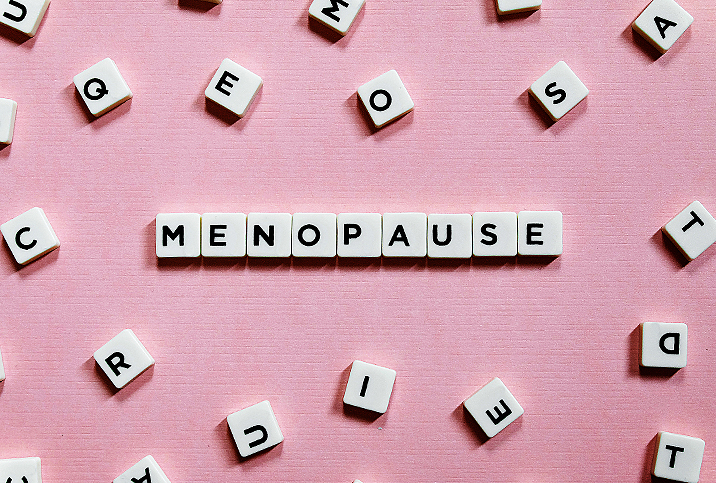No One Ever Runs Out of Viagra, so Why Are We Running Out of HRT?

The United Kingdom has been battling a long-term shortage of hormone replacement therapy (HRT)—also known as menopausal hormone therapy (MHT)—and women are seeing no end to this problem.
HRT is medication taken to replace the estrogen that the body stops making during menopause, as well as treat common menopausal symptoms. With a national supply shortage reported in the U.K., some physicians are unwilling to even prescribe HRT. There is also a delay in making the drug available on annual prescription.
Women suffering from severe menopausal symptoms are being let down by the U.K. National Health Service (NHS), said Shirin Lakhani, M.B.B.S., D.R.C.O.G., an intimate health specialist in Kent, England.
Lakhani, who prescribes HRT at her clinic, said the time has come to take the medication seriously. Recent research suggests that more than 1 million women in the U.K. could be forced out of their jobs this year because many employers fail to support women as they go through menopause.
"We are no clearer on when the HRT supply shortage will be resolved," Lakhani said. "This is causing a huge amount of anxiety to many women. It's a very real issue for women's health and one that we need to speak up about. Women can remain productive in society if we tackle this problem."
Lakhani alluded to the fact that many women are retiring because they cannot cope with the symptoms of menopause, and that's linked to their hormones.
"No one ever runs out of Viagra," she said. "So why are we letting women run out of HRT when it is essential for many women to ensure they remain healthy with a high quality of life?
"The impact of these shortages is very distressing, and it is not a sudden problem. I have been speaking about the shortage since 2019," Lakhani continued. "We also don't run out of statins for heart disease, but some studies have suggested that HRT is actually better at preventing heart disease than statins, which the NHS pushes."
The HRT shortage is a symptom of a much larger problem surrounding the lack of support for women going through menopause.
Why is there stigma surrounding HRT?
"In my experience, HRT is still regularly feared by some healthcare professionals, who can actively discourage their patients from taking it, rather than having a balanced discussion considering up-to-date evidence instead of older, flawed studies," Lakhani said.
In the early 2000s, the results of two large studies, the Women's Health Initiative in the United States and the Million Women Study in the U.K., raised concerns about the safety of hormone replacement therapy, particularly with regard to breast cancer and heart disease. The studies caused widespread panic and confusion among patients and doctors.
Sociocultural shifts take a great deal of time, and there was some significant damage to the general public's view of HRT by the misreporting of studies in the late 1990s and early 2000s, explained Meg Arroll, Ph.D., M.Sc., a London-based psychologist and author of "The Menopause Maze."
"Newer research has found that bioidentical/body identical HRT does not carry the same risks as traditional HRT," Lakhani said. "Although education around menopause is improving thanks to recent campaigns, we still have a long way to go,"
Women who take HRT for 10 years following menopause have a significantly reduced risk of mortality, heart failure and heart attack without any increased risk of cancer, deep vein thrombosis (DVT) or stroke, according to research published in 2012 in the British Medical Journal.
Yet physicians still look at HRT as a symptom reliever for short-term benefits rather than the long term, Lakhani explained.
Understanding the HRT shortage
Lakhani said shortages of some types of menopausal hormone therapy started becoming an issue in the U.K. in late 2018 when some manufacturers had problems sourcing ingredients. Delays caused by the COVID-19 pandemic haven't helped matters.
The HRT shortage is also due to a supply and demand problem, said Carolyn Harris, a member of Parliament (MP) for Swansea East.
"While pharmaceutical companies have recorded a 12-fold increase in the supply of HRT products over the last three years, the number of patients requiring HRT has increased 25-fold, so quite simply, the issue here is supply not meeting demand," Harris explained.
"The stress and anxiety caused by the shortage of HRT has, without a doubt, impacted women negatively," Arroll stated. "We know that stress worsens symptoms in menopause, so there is likely to be a knock-on effect in addition to the direct impact of not being able to source HRT.
"We can't be certain of the long-term impact yet, but the psychological consequences may be akin to low-grade trauma," Arroll said.
Although the rise in demand for hormone therapy is part of the shortage problem, Lakhani believes this is a positive trend in many ways.
"It means more women are coming forward and getting treatment for their HRT symptoms. The rise in demand has been steady over the last five years, so you cannot just put it down to recent campaigns," Lakhani said.
Access to HRT
"HRT is a crucial treatment for women going through menopause and is proven to improve low mood and reduce the risk of clinical depression in the future," Harris said.
Unfortunately, insufficient training of general practitioners (GPs) throughout their careers means their ability to accurately recognize and diagnose menopause is often limited.
"This results in access to treatment being a postcode lottery and many women's symptoms being misdiagnosed," Harris said.
Many menopausal women struggling with symptoms are unable to recognize what they are going through and are unaware of the proven treatments available.
"Of those that do seek help, many are unable to access support from their GP, meaning they end up going to private clinics, an option that is not available for those on low incomes," Harris said. "We need better training for medical professionals to recognize the symptoms and be fully aware of the benefits of HRT for most women."
'Why are we letting women run out of HRT when it is essential for many women to ensure they remain healthy with a high quality of life?'
Lakhani said the cost of monthly prescriptions for HRT is unaffordable for many people, particularly as charges can be put on each hormone, meaning a woman could need to pay for four prescriptions a month. But even if a GP did prescribe HRT for a year, the shortage makes obtaining the medication impossible.
"Most women cannot afford to go private to be prescribed HRT," Lakhani explained. "Once I have got a woman stable on HRT, I often write to their GPs to request that they take over prescriptions, but even if the GP agrees, patients still cannot get hold of it through their pharmacists. It is emotionally distressing as women's health needs are not being met."
"Access to HRT should not be based on a woman's ability to pay, but sadly, that is the current situation for many," Harris stated.
In 2021, the U.K. government announced it would dramatically reduce the cost of NHS HRT prescriptions in England, but Harris said there is a need for the government to fulfill this commitment and introduce the annual prepayment certificate for HRT products sooner than the current expected date of April 2023.
"I want to see HRT available to all women who want it at the lowest possible cost," Harris said. "I intend to continue challenging this to get women the support they need as soon as possible."
Changes to support women during menopause
"So many changes need to be made," Lakhani said. "Training around menopause should be mandatory for all healthcare providers, whether or not they are directly involved in treating the menopause. This is because menopause has a myriad of symptoms and signs, not just the well-known flushes and sweats, and women may present initially to a practitioner other than their doctor.
"Women are still afraid to take HRT because of the perceived risks, and there hasn't been enough education surrounding the benefits," Lakhani continued. "Also, women are reluctant to talk about their issues as there is still so much stigma attached to menopause."
Harris concurred: "We need medical schools to commit to getting the menopause onto curriculums with sufficient time allocated to ensure nobody qualifies without good knowledge of symptoms and treatment available, and we need to ensure that it is included in ongoing training to keep that knowledge up to date."
It's also important for employers to understand how to support women during the menopausal transition. According to Harris, some excellent examples of menopause-friendly workplaces exist. These companies are setting up support groups, changing uniform policy, offering more flexible working arrangements and, in some cases, covering the cost of employees' HRT prescriptions.
"This is fantastic, but we need it to be the norm, not the exception," Harris said. "I would love to see all businesses, whatever size, supporting their staff who are experiencing symptoms of menopause."
Lakhani added: "I believe that education for the public surrounding this and other aspects of women's health should begin at school, so that we can reduce the stigma surrounding it and break down the barriers for women seeking help."
Harris agreed that menopause should be on the school curriculums across the U.K. so the next generation is far more prepared than previous ones.
"Since 2020, the relationship and sex education curriculum taught in schools has rightfully included menopause, but it can't stop and end there. Awareness and education need to come from more than a 30-minute lesson at age 13," Harris said.
"We must find ways to encourage education, awareness and understanding throughout society," Harris continued. "And we need to break down the taboo that still exists, preventing people from speaking openly about their menopause symptoms and experiences."
"We've come a long way, but there's still further to go," Arroll stated. "Just because menopause is a physiological process that all women go through, this doesn't mean that its symptoms should be dismissed or the experience of women disregarded."


















